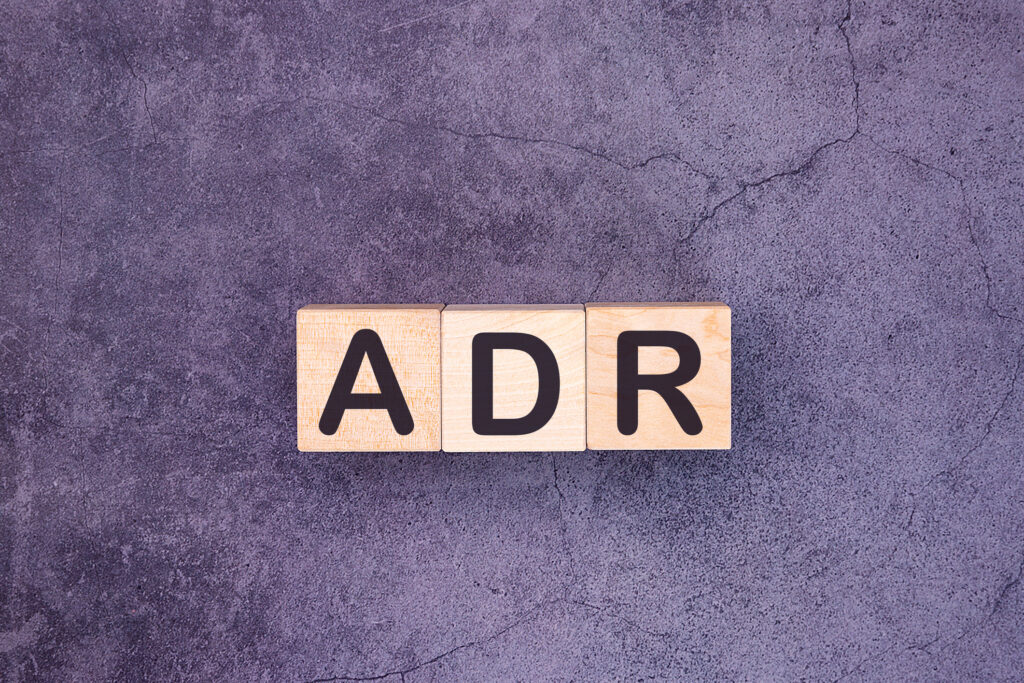Alternative Dispute Resolution

The underlying reason of a conflict has always been an expressed struggle between at least two parties who identify incompatible goals and interference from the other party in achieving their goals. This definition implies disputes have existed as long as human beings have, and arise in every environment ranging from family, to business, etc. Conflict is beneficial to businesspeople in certain instances as it can result to creativity, motivation and productivity – the challenge being to manage the conflict in a manner that does not impede progress or the attainment of the business goals.
The primary way to resolve disputes has been through the courts – a system that was more manageable because of the fewer numbers of disputes. However, with the passage of time, humanity has evolved, and personal and business relationships have become much more complex. In fact, the biggest problem in Africa appears to be a backlog in the court dockets. It became clear that though a long-standing mode of choice of dispute resolution, the traditional judicial process could not offer appropriate solutions to all disputes, and thus the need for alternative routes for dispute resolution (ADR).
ADR refers to neutral mechanisms that allow parties resolve their disputes outside of court in a private forum, with the assistance of qualified neutral intermediaries. It includes processes such as mediation, arbitration, negotiation, conciliation.
In the traditional judicial process, legal disputes are resolved in an adversarial adjudicatory manner, which has as its main characteristic the application of the law in the courthouse. The key players in this process are the judges, the claimant(s), the defendant(s), and their respective lawyers / attorneys. The traditional judicial process relies on the rights and obligations that are enshrined in various legal instruments such as constitutions, statutes, court rules / jurisprudence, or other sources of law. Under the traditional judicial process,
the procedures are usually set out in a well-defined manner, following the rules of evidence and procedure that as far as possibly can further the goals of truth seeking, fairness, and accuracy in the pursuit of justice.
In the traditional judicial process, the parties to the dispute and their witnesses present their version of the facts as well as the law relied on, to the triers of fact (jury) and triers of law (the judge) who have to review, analyse and issue a judgment, which can be appealed to a higher authority.
The traditional judicial process may be effective for truth seeking purposes, however it is still heavily burdened, and as law and society expands, it is expected to become even more so. The civil trial process is further slowed by the litigation process, the increasing direct costs to the parties, and the indirect costs to the system itself.
The most common forms of ADR for civil cases, discussed below, are mediation, arbitration, neutral evaluation,
i. Arbitration
Arbitration constitutes a process whereby an impartial party listens to the positions of the parties in a dispute and makes a binding decision on it. The decision made by the arbitrator is based on the rights and obligations of the parties. Given arbitration is voluntary, both sides must agree to use the arbitration process; as well as agree in advance to abide by the arbitrator’s decision. In light of this, arbitration is seen to be a creature of contract, as prior to disputes arising, parties often agree to resolve disputes using the arbitration process by including arbitration provisions in commercial contracts and in joint ventures agreements. With a binding decision, this process provides clients with an alternative to courtroom litigation. In arbitration, it is crucial that the arbitrator possesses
expertise and experience in the area of the conflict. Nowadays, several organizations have general rules and regulations on arbitration; however, given the flexibility of the process, parties are in a position to tailor the rules to fit their specification individual situations.
When should you use arbitration?
Arbitration should be considered when parties want a binding decision but also want to avoid the accompanying cost of money and time of a court trial.
ii. Mediation
In a mediation process, an impartial and neutral third party helps disputants work towards the resolution of a conflict. The role of the mediator is to guide the disputants towards a solution. However ultimately, the disputants that decide the terms of any agreement reached. Usually, mediation focuses on building blocks for future relationship or continuous collaboration, rather than punishing past behaviour. Contrary to an arbitrator in the arbitration process, the mediator does not decide the outcome or make binding decisions, but merely facilitates resolution between the parties. Therefore, in order for this process to be effective, the parties must have a genuine desire to resolve the matter amicably, reasonably, and work together to create a solution that will work for all parties involved. Further, for clients who have an important business relationship with the other
side which they wish to maintain, mediation offers the benefit of a less adversarial solution. Mediation, as an instrument of the resolution of intellectual property disputes offers many advantages such as speed, informality, and cost effectiveness.
When should you use mediation?
Mediation should be considered for parties that want to preserve their already existing relationship. So for disputes between business partners, family members, mediation may be the best ADR procedure to use. Mediation is available to the parties at any point in the litigation process including through the appeal.
iii. Neutral Evaluation
In this procedure, each party presents their case to a neutral party who gives an opinion on
(i) the strengths and weaknesses of each party’s evidence and arguments, and (ii) how the dispute should be settled. Here, the subject matter of the dispute requires an expert in the field, whose opinion is often used to negotiate a settlement.
Neutral Evaluation encourages the parties to analyze their cases as early as possible, helps the parties ascertain the bone of contention, and offers counsel and parties a brief, impartial, confidential, and objective assessment of the strength and weaknesses of their position. It also offers the parties opportunity to communicate directly about the case, exchange pertinent information, and negotiate settlement with the help of a skilled neutral evaluator.
When should you use Neutral Evaluation?
Neutral Evaluation is best suited to cases with a technical facet that need an expert – for example construction disputes.
N.B
We refer you to our disclaimer notice. For more information, legal assistance and
representation in dispute resolution please send us an email on hallelaw@hallelaw.com.
Recent Posts
- NICO HALLE & Co. LAW FIRM collaborates with ICLG for the 2021 Trade Marks Guide
- “Nico Halle & Co. Law Firm” Shortlisted for OAPI Trademark Awards
- Privacy protection in electronic communications under Cameroon Law
- Cameroon ratifies the Migration Agreement between the Government of The Republic Of Cameroon and The Swiss Federal Council
- Mass Media In Cameroon







Recent Comments